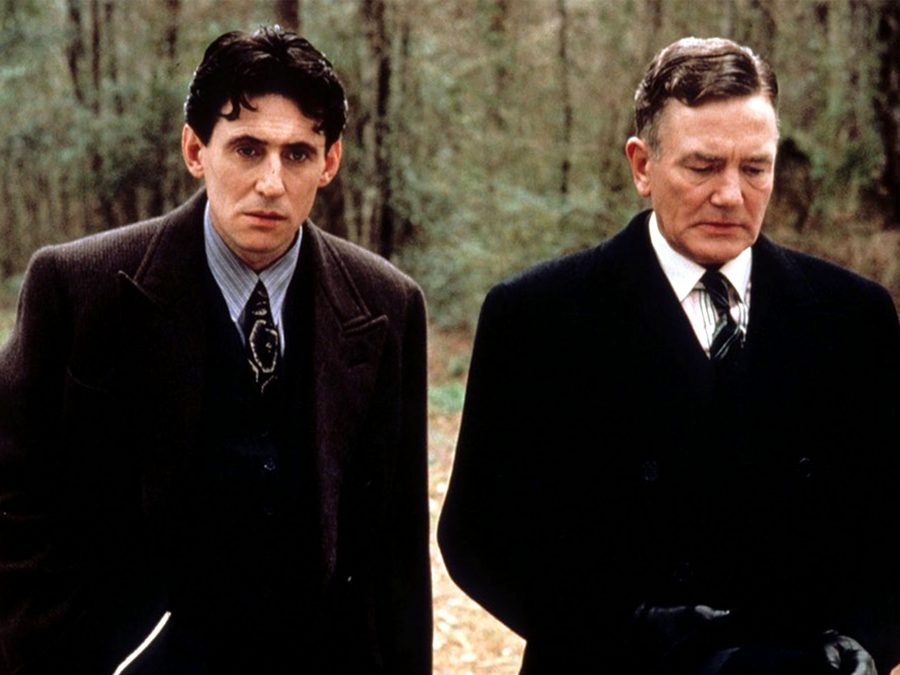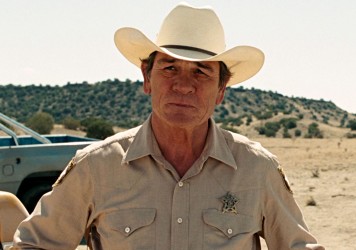
Way back yonder, in the year 1994, after a viewing of the futuristic action movie Demolition Man from a VHS rented from Ritz Video in Palmers Green, London, I professed to anyone who would listen that this was my all-time favourite film. I think it was related to the fact that the final-level bad guy is turned into ice with liquid nitrogen and then smashed to smithereens with a swinging hook.
This moment was important because it was the first time that I felt confident enough to make such a proclamation – to foment the leanings of my artistic taste and to boldly choose a hill (a rather small and unsightly one, I can now see with hindsight) on which I was willing to die.
That first favourite film is always a milestone. Just like your first favourite book, or t-shirt, or Pog, it’s something that you never forget, a hard point from which you can measure change. But then so is the second, which arrived maybe three or four years later on the back of a viewing of the Coen brothers’ third feature, Miller’s Crossing. This is, to be clear, not a second favourite film – this is the point at which Demolition Man was toppled from its vaunted position and a new champion was anointed.
This happened, I recall, due to the fact that my father had purchased a VHS copy of the film, so it meant that I was able to watch it over and over again (as one tended to do with movies at that age, and at a time when private movie holdings were severely limited, so the act rewatching was a necessity). The thing I loved about this film was the stylisation of its dialogue, even if I didn’t know to call it that at the time. It was also the realisation that language is malleable, has evolved a great deal, is geographically specific, and most importantly, can be employed in the same manner that you might cold-cock an enemy with the butt of your trusty Roscoe.
I got endless replay value from the film and would occasionally try to insert hardboiled quotations from the script into idle schoolyard banter or even my English homework. I yearned for a situation where I could march from a room and, per Jon Polito’s pencil-moustached gangster boss Johnny Casper, turn around and utter the immortal line, “Y’s all fancy pants,” but it never really came to be.
The film was the product of Joel and Ethan Coen’s persistent writer’s block, and that duly led them to move away from this for a time and write a screenplay about writer’s block, which became Barton Fink. Miller’s Crossing draws heavily from the plot of Dashiell Hammett’s 1931 crime masterpiece, ‘The Glass Key’, in which slick, smart-mouthed underworld operator Ned Beaumont places his neck on the line for his boss and retainer Paul Madvig. His loyalty is such that he even engineers a scenario where he crosses the tracks to work for Madvig’s bitter rival, but only, it transpires, to bring down the rival from the inside.
The Coens lightly shear back wider intrigues of Hammett’s text, mainly the portions which concern California’s rotten political class and Ned’s lengthy sojourns out of town. They instead zero the plot in on an unnamed north American township lorded over by Albert Finney’s dapper Irish strongman Leo. Whispering in his ear is Gabriel Byrne’s Tom Reagan (nicknamed “Bighead”), a booze-soaked confidence man up to his ears in gambling debts who happens to be a master of psychological manipulation as well as Leo’s closest conspirator.

The film opens on antagonist Johnny Caspar, a two-bit bookie/hustler who’s fed up of being given the “high hat” by the cigar-chomping Leo, and is circling the option of taking a shot at the king. The very basic plot involves a Caspar taking advantage of a public rift between Leo and Tom in the hope that he can take a stranglehold of the town. It is styled as a labyrinthine crime saga in which double, triple and quadruple crosses are the only way to make it out alive.
There’s a superficial pleasure to be had from the simple act of watching a bunch of characters who understand that truth and sincerity (and, by extension, love) are weaknesses, and so their every utterance is either a lie, a scold, or some variety of awkwardly hyperbolic flattery. It’s cinema as a game of chess, where the Coens know all the sneaky openings and finishes, and the audience just has to sit back and puzzle over how they did it. They’ve even got some magnets under the table to shift the pieces when you look away.
As so often comes up with the Coens, it’s easy to poo-poo some of their early films as jaw-dropping technical masterworks in which the writer/directors’ own craftsmanship is the real star of the show. It’s intriguing, however, that they made a film so early on in their career that focuses on a man (Tom) who is constantly and desperately asked to draw on a pool of latent humanism and prove to everyone that he is, in fact, a person rather than a heartless machine. Miller’s Crossing is proof that any human endeavour, however cold it may seem, must be mediated by the stirrings of the heart.
There’s an irony to the fact that, between high-wire grifts, Tom is seen gambling away money he doesn’t have, to the point where he’s duffed up in the hallway by the henchmen of his bemused, out-of-pocket bookie (“Lazarre said he’s sorry about this. It’s just getting out of hand. He likes you, Tom. He said we didn’t have to break anything”). Yet when it comes to gambling on human impulses, on decisions people might make, actions people might take, the flighty (but, sadly, often predictable) whims of the human heart, then Tom’s something of an earthbound soothsayer. Maybe the film may seem cold, but it dares to suggest that there’s something simplistic and calculable about personal destinies.
Like all formative pet movies, the act of returning to them after a long break can seem daunting. Why would you want confirmation of your early-years lack of refinement? Maybe it even makes a mockery of the whole notion of having a “favourite movie of all time”, because that very idea elides the reality that we change as people and our taste evolves alongside the things we see or the art we consume.
So the rewatch for this piece arrived with no small amount of trepidation. And yet it delivered, once more, in a very big way, and cemented my love for the Coens’ classic-era genre workouts (this and 2001’s bone-dry noir homage The Man Who Wasn’t There being two under-loved favourites). It might be down to the fact that the film has taken on a sudden contemporary pertinence, as Johnny Caspar’s opening monologue espouses the importance of ethics, character and friendship, but from within a world of criminal endeavour where these traits are entirely unstable and meaningless.
We are seeing this world of grifts, angles and plays in real time in the US and beyond, where political and criminal worlds converge and overconfident operators profess righteousness from a pedestal of blood and vice. Miller’s Crossing offers a haunting preview of a world in which morality is, to quote John Turtoro’s Bernie Bernbaum, “cold and stiff.”
As so often comes up on our favourite social media platform Twitter Dot Com, there’s no accord when it comes to naming a best Coen brothers movie. I love Miller’s Crossing even though I would no longer claim it to be my favourite of all time. But I’m certainly proud to have called it that once upon a time.
Published 22 Nov 2020
Suggested For You

A brief history of America according to the Coen brothers
By Paul Risker
Hail, Caesar! is the latest entry into the directors’ career-long reframing of their country’s storied past.

The Coen brothers: It Goes Where It Goes
Two men, operating as a single creative body. Little White Lies was offered a rare audience with the Coen brothers.

The Big Lebowski: Why The F*ck?
By Luís Azevedo
To celebrate its 20th anniversary, we take a closer look at the Coen brothers’ cuss-filled classic.










